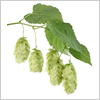 World: Global cultivated hop acreage expected to reach its highest level since 1997
World: Global cultivated hop acreage expected to reach its highest level since 1997
Reports confirm that the global cultivated hop acreage will reach its highest level since the 1997 harvest. The world acreage for crop 2020 shows a total of 62,885 hectares – an increase of 1,306 hectares representing an increase of 2.1% versus crop 2019, IHGC reported on August 12.
The largest acreage expansion is again reported by the Pacific-Northwest area in the United States, for which an increase of 1,055 hectares (+4.4% versus 2019) was published in early July.
The cultivated acreage in Germany has increased by 269 hectares (+1.4%), whereas other regions of Europe show stable acreage (Belgium, France, Spain) or even a decline (Slovenia, Czech Republic, UK).
Due to favorable weather conditions in almost all growing regions, an average crop can be expected for Europe and the Pacific-North-West Area, despite the fact that plant protection has been a major challenge across most of the European growing areas and wilt continues to damage hop gardens in Germany.
The crucial impact on the market situation is expected to arise for 2020/ 2021 from the brewing side. The Covid-19 pandemic and relevant governmental lockdown instructions during Q2 2020 have had an impact on beer production in most of the major brewing countries. The exact magnitude of the impact on beer production is still unknown, but the present situation is definitely going to present a challenge to the brewing industry.
Overall, a surplus of alpha quantities can be expected again for the 2021 brewing year. This is due to favorable weather conditions in Europe, where we expect alpha values to be within the long-term average.
Nevertheless, availability of hops on the spot market appears to be limited (at least according to the contractual situation), because more than 90% of all crop 2020 hops are forward contracted and are in the hands of brewers and merchants. At this stage it is impossible to predict to what extent the worst affected brewers might ask for cancellation postponement of contracts.
For some special aroma varieties such as Mandarina Bavaria, Cascade and Centennial, decreased demand will increase the tendency towards oversupply. Other varieties might stay more balanced, where low alpha contents and yields of past crops have led to a reduction of brewers’ stocks.
There is a lack of uniformity in the situation of the global craft beer industry. Whereas those brewers with strong retail networks who sell their beer through the food retail industry have benefitted from the lockdown in Q2 2020, small craft brewers and brew pubs with on-premise consumption appear to be suffering from the Covid-19 situation.
The impact on US proprietary, microbrew-related varieties is difficult to predict.
Generally speaking, it needs to be kept in mind that apart from the challenges relating to the Corona virus, increasing restrictions for the use of plant protection products and fertilization play a significant role for the future of hop growing.
Back
E-malt.com, the global information source for the brewing and malting industry professionals. The bi-weekly E-malt.com Newsletters feature latest industry news, statistics in graphs and tables, world barley and malt prices, and other relevant information. Click here to get full access to E-malt.com. If you are a Castle Malting client, you can get free access to E-malt.com website and publications. Contact us for more information at marketing@castlemalting.com .





